Machine Learning in Future Wireless Networks, a Major Revolution or a Small Evolution?
Panel Lead/Moderator: Dr. Ebtesam Almazrouei
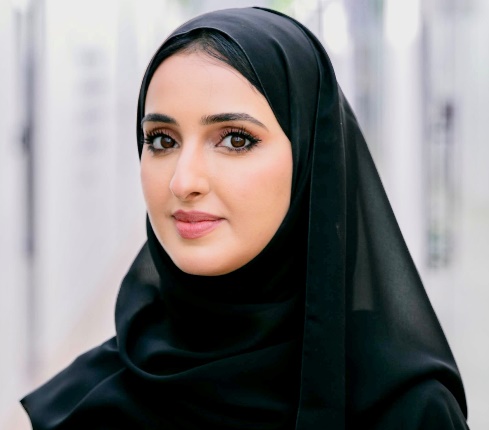
Short Bio: Dr. Ebtesam Almazrouei is Executive Director, Acting Chief AI Researcher, and Co Founder for the Al-Cross Center Unit (AICCU) at the Technology Innovation Institute (TII). She is a renowned leader and visionary in the field of artificial intelligence (AI) and technology. With a wealth of knowledge and experience, she has made significant contributions to AI research, development, and innovation - earning her a distinguished reputation in the industry.Dr. Almazrouei is recognized worldwide for her contributions to AI and was featured in Leading AI Women in the World in 2023 list, alongside other distinguished women in the field. She also received the Global Leadership Women in Tech® MENA Award in 2023. Dr. Almazrouei is an advocate for sustainability and AI for Good initiatives, as well as the general chair of Abu Dhabi AI Connect and TPC chair of many IEEE international conferences.
Dr. Almazrouei’s leadership and expertise have been vital in the successful development of TII’s Falcon LLM models (home-built rivals to ChatGPT), which significantly outperform models from giant tech companies. Her commitment to pushing the boundaries of AI innovation and her instrumental role led to the creation of the Middle East’s first homegrown, open-source large language model (LLM), Falcon 40B for use in research and commercialization. Following the phenomenal success of Falcon 40B, she then launched Falcon 180B, an advanced iteration of its predecessor and the world’s most powerful open AI model. Additionally, Dr. Almazrouei led the development of NOOR, the largest Arabic LLM model in 2022.
Her contributions extend beyond her work at TII where she leads the big data expert subcommittee of the UAE Council for AI and Blockchain and is a member of the worldwide steering board of the Wireless World Research Forum (WWRF). She is also a member of the Science and Engineering Advisory Board at Sorbonne University Abu Dhabi (SUAD). She is a scientific author, patent inventor, entrepreneur, and renowned speaker, known for her keynote speeches at prestigious summits such as the CogX Festival 2023- London UK, AI Summit in London, World AI Cannes Festival, and Tech summits.
Dr. Ebtesam Almazrouei previously worked in the telecommunications industry delivering business solutions for companies like BT, Etisalat, and KU where she leveraged her expertise to develop advanced tech solutions and products for stakeholders across multiple industries on the Internet of Things (IoTs), autonomous vehicles and drones, wireless localization, intelligence systems, 5G and beyond.
Contact: Technology Innovations Institute, Abu Dhabi, UAE, Email: ebtesam.almazrouei@tii.ae
Panelists: Ratnakar Rao
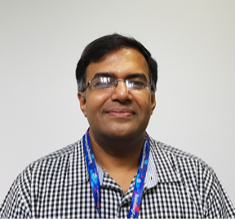
Short Bio: is Senior Director, Engineering at Samsung R&D Institute in Bangalore, where he leads the Beyond 5G Communication R&D. He has over 20 years of experience in telecommunication industry . He specializes in Wireless protocols and played a key role in the launch of Samsung's 5G devices in world-wide markets. He is a Senior Member, IEEE and has 30+ International patent grants. His current areas of interest include AI-in-Wireless and Next generation communication systems. Ratnakar holds a Master's degree in Telecommunication Systems Engineering from IIT, Kharagpur. He is a TEDx speaker and has delivered several invited talks and podcasts on technological advances. His profile is available at www.linkedin.com/in/ratnakar-rayavarapu.
Contact: Mr. Ratnakar Rayavarapu. Samsung R & D Institute, Bangalore
Panelists: Dr. David Gomez Barquero
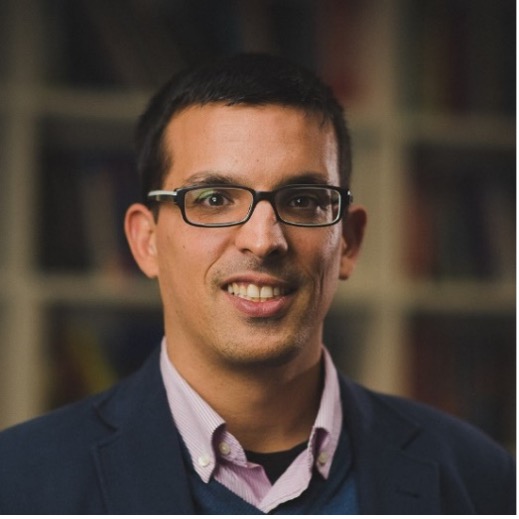
Short Bio: Dr. David Gomez-Barquero is an Associate Professor at the Communications Department of the Universitat Politecnica de Valencia (UPV), Spain, where he leads a research group at the Institute of Telecommunications and Multimedia Applications (iTEAM) working on next generation wireless communication technologies, including broadcasting. He received with First Class Honors distinction a double M.Sc. degree in telecommunications engineering from the UPV and the University of Gävle, Sweden, in 2004, and the Ph.D. degree in telecommunications from the UPV in 2009. During his doctoral studies he was a guest researcher at the Royal Institute of Technology, Sweden, the University of Turku, Finland, and the Technical University of Braunschweig, Germany. He also did an internship at Ericsson Eurolab, Germany. His Ph.D. thesis was awarded by the Spanish College of Telecommunications Engineering, and in 2010 he was awarded with the best young researcher prize of Valencia. He carried out a 2-year post-doc at the Fraunhofer Heinrich Hertz Institute (HHI), Germany. He also held visiting research appointments in Sergio Arboleda University, Colombia, the New Jersey Institute of Technology (NJIT), USA, , and the Electronics and Telecommunications Research Institute (ETRI), Korea.
Currently, his research is focused on 5G, and is the project coordinator of three European H2020 projects: 5G-RECORDS on 5G content production (www.5g-records.eu), FUDGE-5G on cloud-native private 5G networks (www.fudge-5g.eu) and iNGENIOUS on next-generation 5G-based IoT (www.ingenious-iot.eu). Previously he coordinated the H2020 5G-Xcast project that developed broadcast and multicast technology components for 5G (www.5g-xcast.eu). He led the first live television content production using exclusively 5G (standalone network) with Orange, ZTE and the Spanish Public Broadcaster RTVE during the EUCNC 2019 conference.
Contact: Universitat Politècnica de València, Camino de Vera,46022 Valencia, SPAIN. Email: dagobar@iteam.upv.es
Panelists: Dr. Burak Kantarci
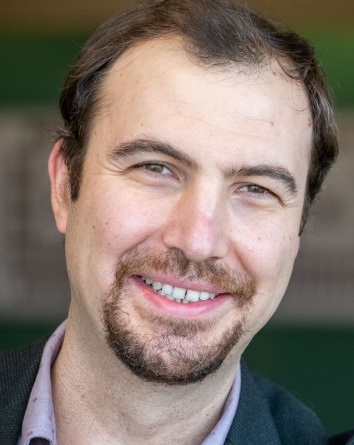
Short Bio: Dr. Burak Kantarci is an Associate Professor and the Founding Director of Smart Connected Vehicles Innovation Centre (SCVIC), and the Founding Director of the Next Generation Communications and Computing Networks (NEXTCON) Research Lab, University of Ottawa. He received the Ph.D degree in computer engineering from I.T.U in 2009. He has coauthored over 200 publications in established journals and conferences, and 15 book chapters. He is well known for his contributions to the quantification of data trustworthiness in mobile crowd-sensing (MCS) systems, and game theoretic incentives to promote user participation in MCS campaigns with high value data; as well as AI-backed access control, authentication and machine learning-backed intrusion detection solutions in sensing environments. He has been awarded a Best Paper Award in IEEE GLOBECOM 2021. In 2022, he has been awarded a Minister's Award of Excellence in Innovation and Entrepreneurship from Ontario Ministry of Colleges and Universities. He served as the Chair of IEEE Communications Systems Integration and Modeling Technical Committee, and has served as the Technical Program Co-Chair/Symposium Co-chair of more than twenty international conferences/symposia/workshops, including IEEE Global Communications Conference (GLOBECOM)—Communications Systems QoS, Reliability and Modeling (CQRM) symposium. In 2021, he has been elected as the new Secretary of IEEE Social Networks Technical Committee. He is an Editor of the IEEE Communications Surveys & Tutorials, IEEE Internet of Things Journal, Vehicular Communications (Elsevier), and an Associate Editor for IEEE Networking Letters, and Journal of Cybersecurity and Privacy. He is Editor for several IEEE and Elsevier journals. He was an ACM Distinguished Speaker in 2019-2021, currently an IEEE Senior Member and ACM Senior Member. He is IEEE Systems Council Distinguished Lecturer.
Contact: University of Ottawa, ON, Canada, Email: Burak.Kantarci@uottawa.ca
Panelists: Dr. Belkacem Mouhouche
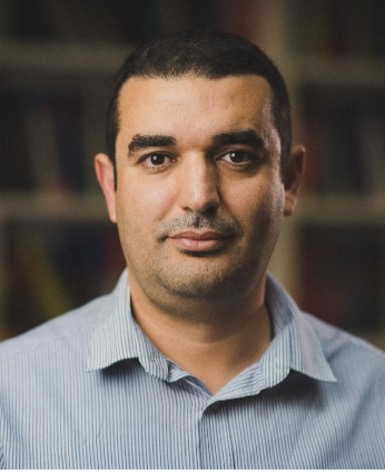
Short Bios: Dr. Belkacem Mouhouche is a Principal Researcher at the Technology Innovation Institute in Abu Dhabi (UAE), where he works on the application of machine learning techniques to wireless communication systems. He holds a Ph.D. degree in Signal Processing from Ecole Nationale Superieure des Telecoms (E.N.S.T) in France. Prior to joining TII, Dr. Mouhouche worked for major corporations such as Samsung, Freescale, NEC and Alcatel Lucent. He contributed to 3GPP standards and Digital TV standards. He was also involved in many European projects, from FP7 to Horizon 2020, including the technical management role of 5G-Xcast and 5G-TOURS. His research interests are in the area of Machine Learning for wireless, Large Language Models applications, advanced techniques for the physical layer of future communication systems.
Contact: Technology Innovations Institute, Abu Dhabi, UAE, Email: belkacem.mouhouche@tii.ae
5G networks are being deployed all over the world and the design of the next generation has already started. Researchers are exploring the technologies that will enable the next paradigm shift in wireless networks. With the recent rise of large language models, machine learning gained a lot of attention from the general public. However, the use of machine learning in wireless networks is still a long way from reaching its full potential. Issues such as the availability of data in the general sense and also the possibility to share data between operators in order to train models will have to be solved in order to enable this endeavour. Furthermore, machine learning has already been considered in recent releases of the Third Generation Partnership Project (3GPP) where the addition of an entity responsible for data collection was introduced, namely the The Network Data Analytics Function (NWDAF). However, the specific algorithms are yet to be studied. The most obvious use of AI/ML in networks is the self-organizing network (SON) capabilities. Even though this was introduced in Rel-8, it is not based on machine learning. Future networks will be able to self-optimize using the large amount of data that the network collects. An even higher level of sophistication can be achieved in self-built networks where a network not only adapts itself, but reinvents itself proposing a new architecture, an additional function, or a new measurement.
This panel discussion will focus on the possibilities that machine learning will open up in future wireless network of beyond 5G and 6G where the full power of AI can be applied to networks in order to understand complex users’ behavior both individually and collectively. Leading the way ultimately to network that are able to adjust and reinvent themselves from the large amount of data that is collected from the traffic, in addition to the technical documents describing new technologies and specifications without the need to go through the production cycle. The challenges will be discussed including the availability of the data and the data sharing restrictions.
Focus Areas:
- Explain the current position of standards with regards to AI/MLThe “What of GenAI” with real-life examples
- Discuss how AI/ML can be used in 6G for self-built networks
- Elaborate on how the challenges of data availability and sharing can be overcome
- Discuss knowledge sharing between nodes, base stations, and operators
Panel duration: (Total 90 minutes: 60 min discussion, Total 30 min Q&A encouraged as interspaced)
Timeline for expert discussion: 50 minutes
Moderator time: 10 Minutes
Q & A for audience: 30 Min (encouraged as interspaced between discussions as well as toward the end)





